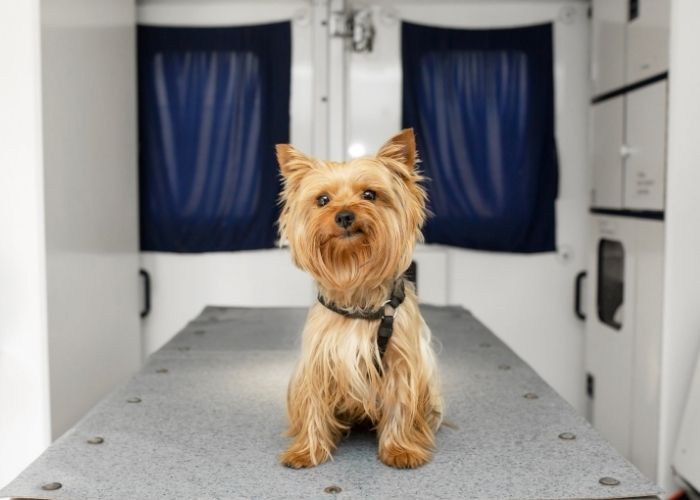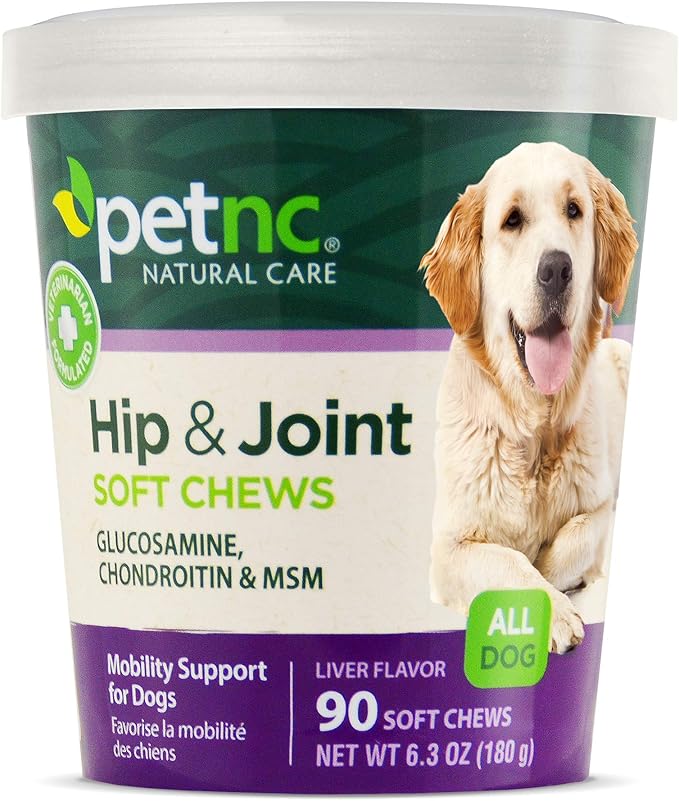Last Updated on November 23, 2021 by Ana P.
Yorkies are prone to Yorkie knee problems due to their small sizes, this small fluffy puppy weighs around 7 pounds. The Yorkie knee joint consisted of two bones, they are femur and tibia. Additionally, there is a small bone called the patella that forms the knee cap. Furthermore, there are some ligaments that connect these bones together. The joint needs a lubricant in order to move freely with no damage to any of the bones, it is the synovial fluid. After discussing the basic anatomy of the knee joint, I’ll take you through two of the most important knee problems.
Table of Contents
Yorkie Arthritis
What Is Yorkie Arthritis?
Osteoarthritis (OA) or Yorkie arthritis is an inflammation or degeneration of the knee joint. Yorkie with arthritis feels pain that makes it unable to perform daily activities comfortably.
What Are The Signs Of Yorkie Arthritis?
There are many signs of arthritis, however, your puppy may not present all of them at the same time. It may experience a combination of two or three of them.
- Pain
- Lameness
- The puppy will become aggressive toward other pets and people due to their pain.
- It experiences difficulty getting up and down
- It walks stiffly
- Loss of stamina
- The joint becomes stiff, swollen, or sore
- It hardly goes up or downstairs
- It does not allow you to touch the joint due to the pain it feels
- Reluctance to jump onto/off furniture.

What Are The Causes Of Yorkie Arthritis?
Many people think that getting old is a cause of osteoarthritis, however, this is not correct. There is no single direct reason for Yorkie arthritis. However, it is a result of a combination of some factors including;
- The structure of the Yorkie’s body or body conformation.
- The body weight as if your puppy is obese or overweight, the extra weight will exert pressure on the knee joint making it prone to OA.
- Abnormal knee joint development, for instance, luxating patellas.
- Orthopedic surgery.
- The activity and nutritional history. If you are feeding it highly nutritious food and training it regularly, it won’t develop knee arthritis easily. While if you are providing it with poor nutrition and little exercise, there will be a higher chance of developing arthritis. Additionally, the Yorkie will become prone to obesity that makes the condition worse.
What Is The Treatment Of Yorkie Arthritis?
Unfortunately, there is no treatment for knee arthritis, however, the vet prescribes some medications to manage the signs and prevent the condition from getting worse. In addition to medications, there are other tips you can follow to ease the puppy’s pain.
Medications
The vet will prescribe a medication to relieve the pain. There are two types of pain medications, Non-steroidal Anti-Inflammatory Drugs (NSAIDs) and corticosteroid anti-inflammatory drugs. Be vigilant that you should not use both of them together, follow your vet prescription, please.
Moreover, there is Gabapentin that is another pain medication. You can use Gabapentin in combination with NSAID or corticosteroid.
Nutritional Supplement Or Nutraceutical
This drug formula contains mainly natural herbs and minerals. Additionally, it contains collagen, chondroitin, and glucosamine that support joint health. For instance, Petnc Hip and joint supplement.
Nutrition
It is important to feed your puppy nutritious food that does not contain lots of fillers. Furthermore, your vet will request some lab tests to check for nutritional deficiencies to correct them.
Read more about Best Food For Yorkie.
Physical Therapy
Acupuncture and physical rehabilitation are critical. It will reduce the pain and strengthen the muscles supporting the joint.
Luxating Patella Yorkie
What Is A Luxating Patella?
Luxating patella refers to the presence of the patella out of its normal location. Normally, the patella is located in a groove above the knee on the end of the femur.
What Are The Signs Of Luxating Patella?
The puppy rarely experiences pain with patellar luxation. While Yorkie will show lameness in the form of intermittent skipping. In other words, you may see it running on three legs then suddenly walking on its four as nothing happened.
What Are The Causes Of Luxating Patella?
Yorkies have a genetic predisposition to the luxating patella condition. Additionally, there are other possible reasons for this condition including;
- Traumatic injury
- The groove where the patella locates is too shallow
What Is The Treatment Of Luxating Patella?
There are four grades of luxating patella and treatment depends on the grade your puppy has. Usually, the first two grades are correct manually in combination with some medications. While the last two grades may require surgery.
Luxating patella treatment non-surgical includes anti-inflammatories, physical rehabilitation, and exercises to strengthen the muscles supporting the joint. Additionally, if your Yorkie is obese, try to make it lose some pounds to allow the joint to bear the weight and function properly.
On the other hand, if the luxating patella is advanced, the vet will recommend surgery. The surgery will correct the displacement and fix the damage within the joint. Moreover, if the groove where the patella locates is shallow, the vet will perform a certain technique to make it deeper.
After surgery, your puppy has to wear a bandage or brace for three to five days. Limite their exercise for about four to eight weeks after the operation. Then, go for rehabilitation to help the joint go back to its normal movements. Finally, watch out when your Yorkie is walking after the operation. Try using a leash when going to the bathroom and restrict its movement to be in a small place till recovery.
Wrap Up
Yorkie arthritis and luxating patella are among the most important Yorkie knee problems. Yorkies have a genetic predisposition to these conditions. While there is no guarantee that your Yorkie won’t experience any of those conditions. There are some tips to follow that will help reduce the chance of getting such conditions or at least delay the incidence. Ensure feeding your puppy high-quality food that contains mainly real protein. I advise you to stay away from products with lots of fillers, preservatives, and coloring. Furthermore, keep exercising your puppy regularly to stay fit with no obesity. Finally, regular vet visits are beneficial and critical. For further questions, please keep me posted in the comments below.
Learn more about The Reasons For Yorkie Coughing and Gagging.
